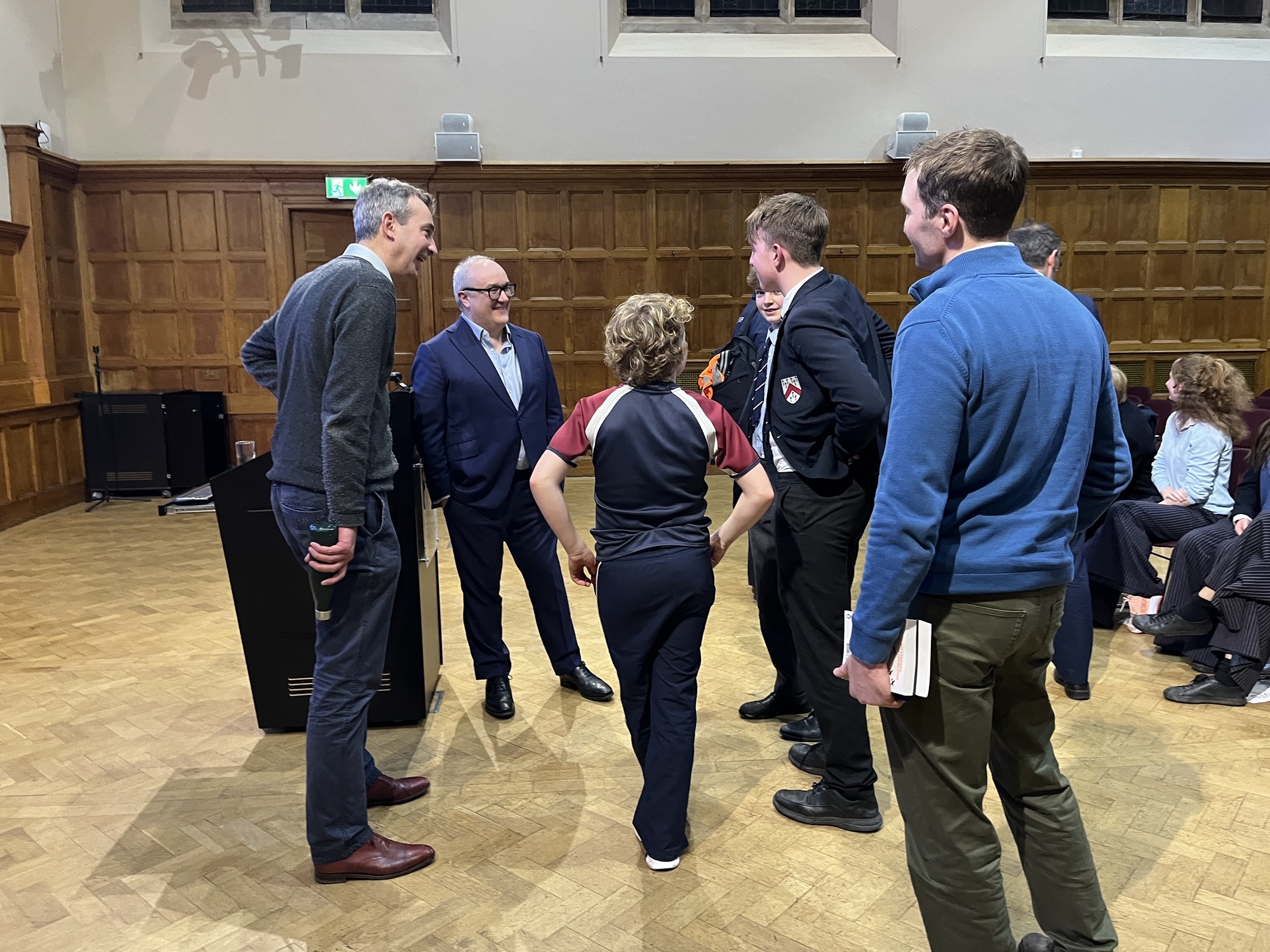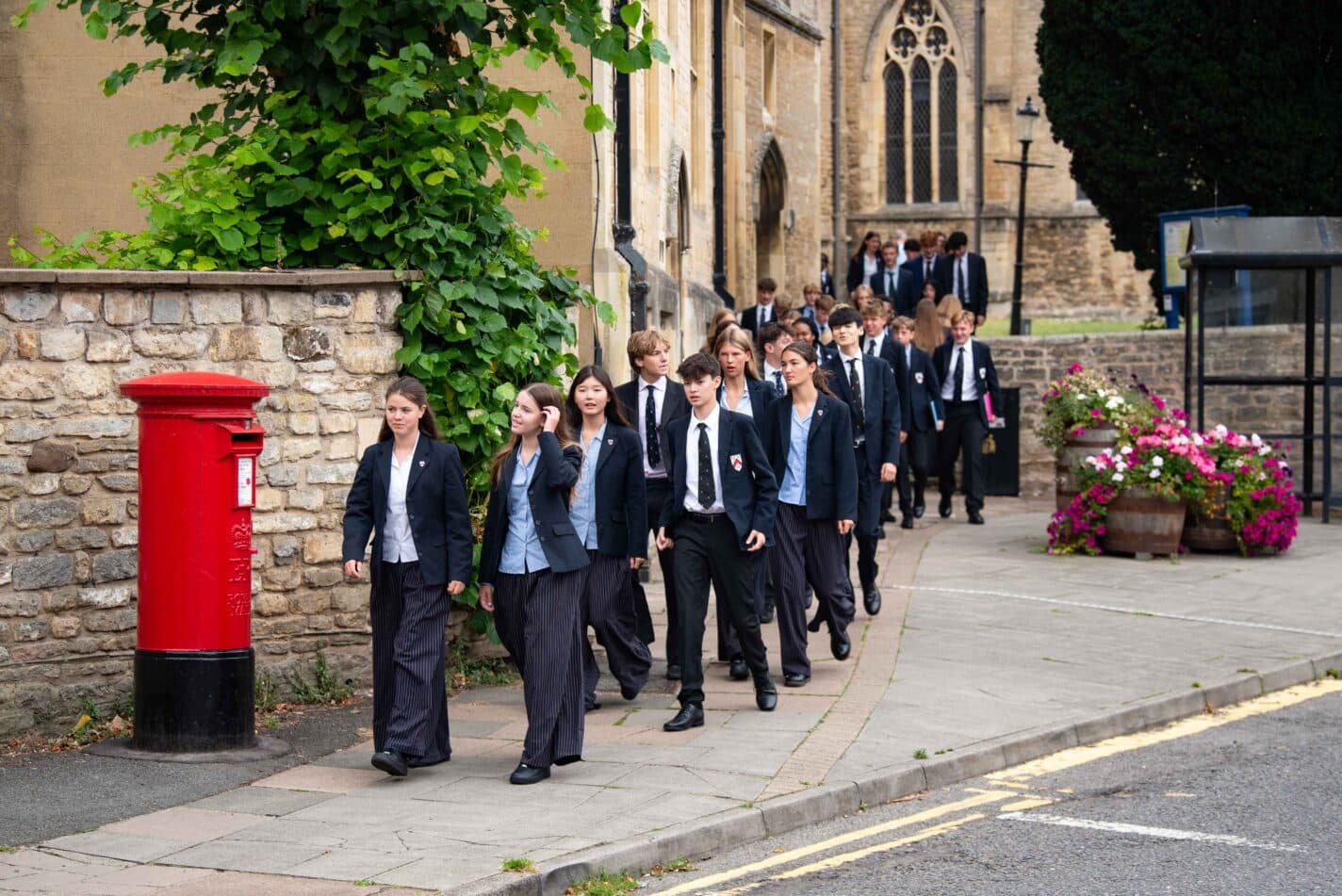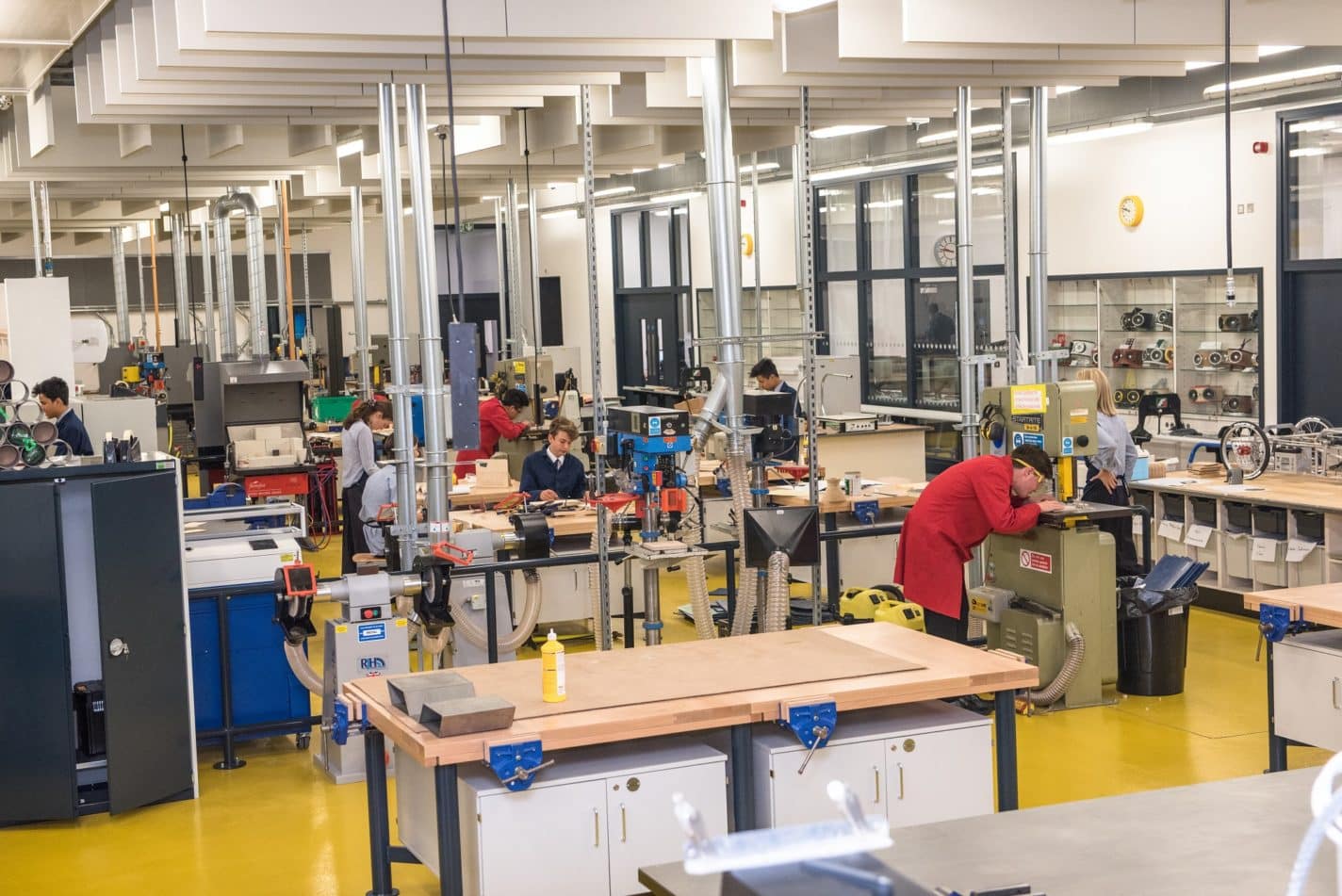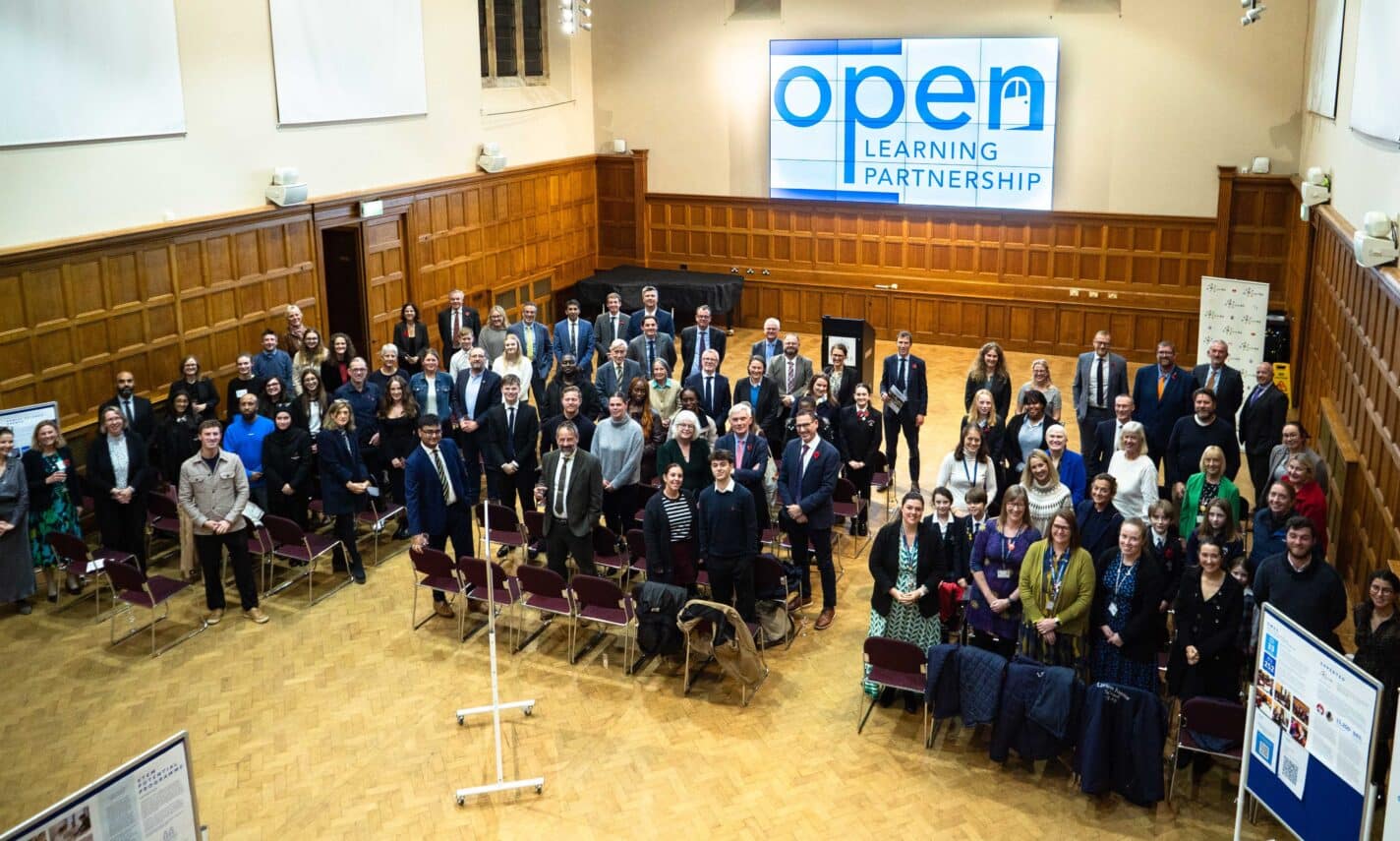The Rest is History podcast is downloaded more than six million times a month, and its presenters sell out live shows in New York and Australia. So, there was excited anticipation when one of the podcasting duo, historian Dominic Sandbrook accepted an invitation from Oundle’s History Society.
The evening was organised in a Question Time format, and with his characteristic blend of humour and erudition, Sandbrook fielded questions about historiography, diversity in the curriculum, counterfactuals and historical misconceptions (the disappointing reality that the Vikings did not wear horned helmets). There was no shortage of follow-on questions from pupils of all ages, extending the session well past the hour mark.
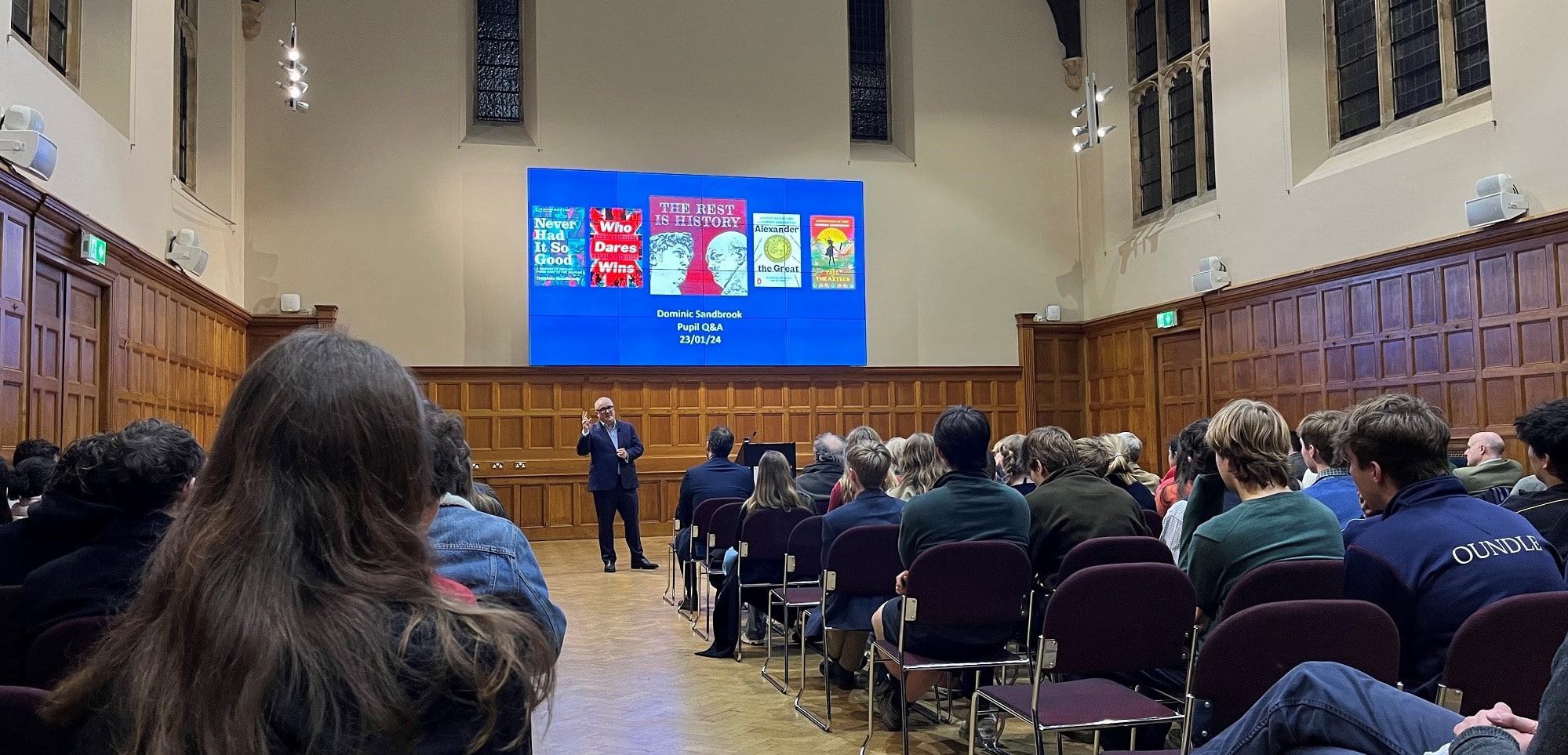
His podcast with Tom Holland now spans 411 episodes covering diverse subjects from the life of Jesus and Pompeii, to the American Civil War, Rasputin, Nazism and the rise of Putin.
Sandbrook said he aims to engage listeners with exciting historical stories that are satisfyingly informative and accessible, and which crucially do not moralise about or “disapprove” of the past, which he said would be just “boring”. He said a significant misconception about our understanding of history is that people in the past thought as we do, but the past is much stranger and more unsettling than we often imagine. The Romans were not “just like us but wearing togas”. He emphasised that people’s assumptions and values were completely different, making it a challenge to approach the past objectively, on its own terms.
He does not think that the study of history should be used as a toolkit to address contemporary problems. He said those who are tempted to draw lessons from history in order to do politics, for example, often look for incidents that confirm their own biases.
According to Sandbrook, the lesson to be drawn is that the past is a fascinating story of weird and wonderful happenings and extraordinary people. The study of the past allows one to understand the complexity of the world, and the great messy diversity of humanity.
